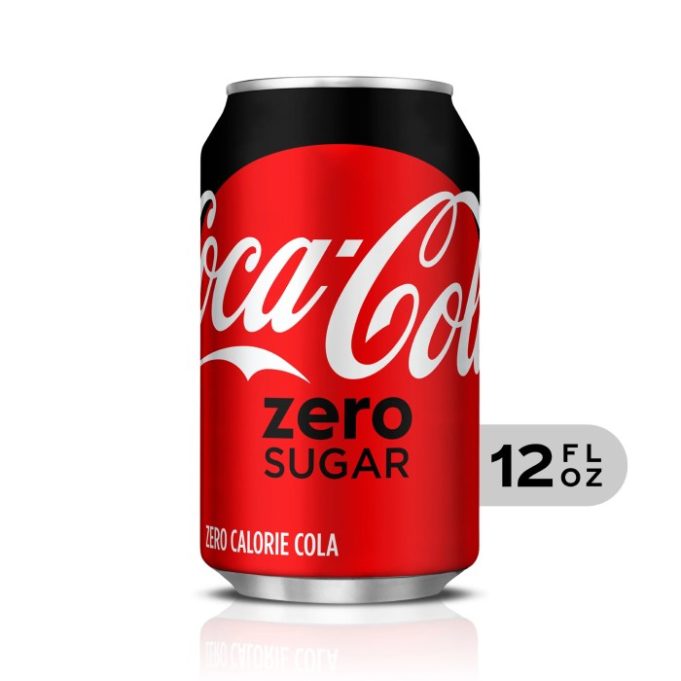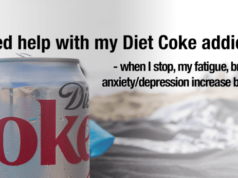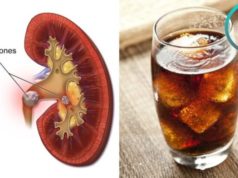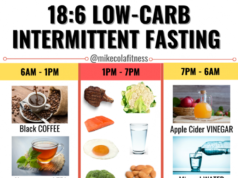How is Diet Coke bad for you? This seemingly innocuous beverage, marketed as a sugar-free alternative, has sparked a debate about its potential health implications. While it might seem like a guilt-free choice, Diet Coke’s artificial sweeteners, caffeine content, and overall impact on dietary habits raise questions about its long-term effects on the body.
This article delves into the science behind artificial sweeteners, their potential impact on gut health, and the role of caffeine in dehydration. We’ll explore how Diet Coke consumption might influence cravings for sugary foods and discuss the psychological aspects of habit formation and dependence. Ultimately, we aim to provide a balanced perspective on Diet Coke, empowering you to make informed choices about your beverage consumption.
The Sweet Truth
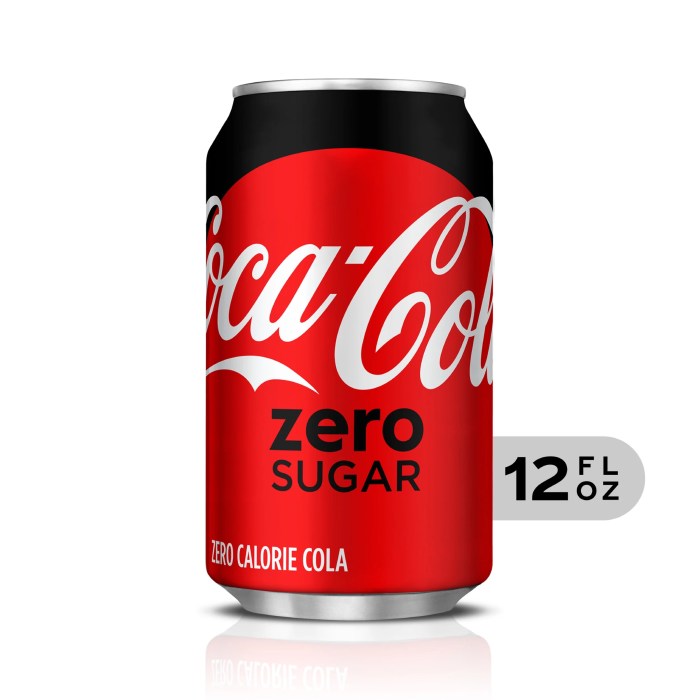
Diet Coke and other diet sodas often tout themselves as healthier alternatives to their sugary counterparts, but the truth about artificial sweeteners is more complex than a simple sugar-free label. While they may help reduce calorie intake, the long-term effects of these artificial compounds on our bodies are still being studied.
Artificial Sweeteners and Their Effects
Artificial sweeteners are synthetic compounds designed to mimic the sweetness of sugar without providing calories. Aspartame, sucralose, and saccharin are some of the most common examples. They work by interacting with taste receptors on our tongues, sending signals to our brains that we are consuming something sweet. However, unlike sugar, these sweeteners don’t provide energy and don’t trigger the same metabolic responses in our bodies.
Potential Health Risks
While artificial sweeteners are generally considered safe in moderate amounts, some studies have linked their consumption to potential health risks.
Impact on Gut Health
Artificial sweeteners can disrupt the delicate balance of bacteria in our gut, known as the microbiome. This disruption can lead to various health issues, including:
- Increased risk of metabolic disorders like obesity and type 2 diabetes
- Inflammation in the gut
- Changes in appetite and food cravings
Other Potential Health Risks
Research suggests that artificial sweeteners may also be linked to:
- Increased risk of cardiovascular disease: Some studies have shown a correlation between artificial sweetener consumption and higher blood pressure and cholesterol levels, which are risk factors for heart disease.
- Negative effects on brain function: Studies have suggested that artificial sweeteners might alter brain activity, potentially leading to changes in mood, memory, and cognitive function.
- Increased risk of cancer: While the evidence is still inconclusive, some studies have raised concerns about a potential link between artificial sweetener consumption and certain types of cancer.
Artificial Sweeteners vs. Sugar
Comparing the health risks of artificial sweeteners and sugar is tricky, as both have their own set of potential downsides.
Sugar
Sugar is a natural carbohydrate that provides energy to our bodies. However, excessive sugar consumption can lead to:
- Weight gain and obesity
- Type 2 diabetes
- Heart disease
- Tooth decay
Artificial Sweeteners
While artificial sweeteners don’t contribute to calorie intake, they can still have negative health effects, as discussed above.
Artificial Sweetener Comparison Table
| Sweetener | Calorie Content (per serving) | Potential Health Risks |
|---|---|---|
| Aspartame | 0 | Possible link to headaches, digestive issues, and brain changes. |
| Sucralose | 0 | Potential disruption of gut bacteria and possible link to inflammation. |
| Saccharin | 0 | Possible link to bladder cancer (although evidence is mixed). |
The Dehydration Factor
While Diet Coke is sugar-free, it’s not calorie-free. The caffeine in Diet Coke acts as a diuretic, meaning it increases urine production, which can lead to dehydration if not enough fluids are consumed.
Caffeine’s Impact on Hydration
Caffeine is a stimulant that affects the body’s fluid balance. It works by blocking the action of adenosine, a neurotransmitter that promotes sleep and relaxation. This blocking action also increases the production of urine, leading to increased fluid loss.
Consequences of Dehydration
Dehydration can lead to various health issues, especially if you consume large amounts of caffeine.
- Headaches: Dehydration can trigger headaches due to changes in blood volume and pressure within the brain.
- Fatigue: Dehydration can impair physical and cognitive function, leading to fatigue and decreased energy levels.
- Constipation: Dehydration can slow down digestion and make bowel movements difficult.
- Kidney stones: Dehydration can increase the risk of kidney stones by concentrating minerals in the urine.
- Heat exhaustion: Dehydration can exacerbate the effects of heat, increasing the risk of heat exhaustion and heat stroke.
Staying Hydrated While Consuming Caffeinated Beverages
It’s crucial to stay hydrated while consuming caffeinated beverages like Diet Coke. Here are some tips:
- Drink plenty of water: Aim to drink at least eight glasses of water per day, especially if you consume caffeine regularly.
- Alternate caffeinated beverages with water: Have a glass of water between each caffeinated drink to help maintain your fluid balance.
- Choose decaffeinated options: Consider opting for decaffeinated versions of your favorite beverages if you’re concerned about dehydration.
- Listen to your body: If you experience any signs of dehydration, such as thirst, dry mouth, or dizziness, drink more water immediately.
Caffeine Content in Beverages
Here’s a table illustrating the caffeine content of various beverages, including Diet Coke:
| Beverage | Caffeine Content (mg) |
|---|---|
| Diet Coke (12 oz) | 46 |
| Coffee (8 oz) | 80-100 |
| Green Tea (8 oz) | 30-50 |
| Black Tea (8 oz) | 40-70 |
| Energy Drinks (8 oz) | 80-160 |
Beyond the Beverage
Diet Coke, while seemingly a “zero-calorie” option, can still have an impact on your overall diet. While it doesn’t directly contribute to calorie intake, its frequent consumption can lead to a series of indirect effects that can ultimately compromise your dietary balance.
Diet Coke and Cravings
The artificial sweeteners in Diet Coke can trigger your taste buds, sending signals to your brain that you’re consuming something sweet. This can lead to a craving for more sugary foods and beverages, even though you’re technically not consuming any added sugar. The artificial sweeteners can also disrupt the gut microbiome, further contributing to cravings for sweet and unhealthy foods.
The Psychological Side: How Is Diet Coke Bad For You
While the physical effects of Diet Coke are a concern, the psychological aspects of its consumption shouldn’t be overlooked. Diet Coke, like many other beverages, can create a cycle of habitual consumption that can be difficult to break. Understanding these psychological factors is crucial in addressing the potential for dependence and developing strategies for reducing intake.
Habit Formation
The regular consumption of Diet Coke can lead to the development of a habit. Habits are automatic behaviors that are triggered by cues, such as the time of day, a particular activity, or even the sight of a Diet Coke can. This repetitive behavior can be driven by various psychological factors, including:
- Reward System: The caffeine in Diet Coke stimulates the release of dopamine, a neurotransmitter associated with pleasure and reward. This can create a positive reinforcement loop, where the act of consuming Diet Coke becomes associated with feelings of pleasure and satisfaction.
- Stress Relief: Diet Coke can be a quick and readily available way to cope with stress. The caffeine can provide a temporary boost of energy and focus, while the act of consuming the beverage itself can be a distraction from stressful thoughts or situations.
- Social Cues: Diet Coke is often associated with social settings, such as gatherings with friends or work breaks. These social cues can trigger a desire for the beverage, even if you’re not actually thirsty.
Dependence on Caffeine and Artificial Sweeteners
The regular consumption of Diet Coke can lead to dependence on its ingredients, particularly caffeine and artificial sweeteners. This dependence can manifest as:
- Withdrawal Symptoms: When you stop consuming Diet Coke, you may experience withdrawal symptoms such as headaches, fatigue, irritability, and difficulty concentrating. These symptoms are often attributed to caffeine withdrawal.
- Cravings: Even after reducing or eliminating Diet Coke, you may still experience cravings for the beverage. These cravings are often triggered by cues, such as the time of day, a stressful situation, or the sight of a Diet Coke can.
- Tolerance: Over time, you may need to consume more Diet Coke to achieve the same effects, as your body becomes accustomed to the caffeine and artificial sweeteners. This can lead to a cycle of increasing consumption.
Strategies for Breaking the Habit
Breaking the habit of regular Diet Coke consumption can be challenging, but it’s possible with a combination of strategies:
- Identify Triggers: Pay attention to the situations, emotions, or cues that trigger your desire for Diet Coke. This awareness is the first step in breaking the habit.
- Replace with Alternatives: Find healthy and satisfying alternatives to Diet Coke, such as water, herbal tea, or sparkling water with a squeeze of lemon or lime.
- Gradual Reduction: Instead of going cold turkey, gradually reduce your Diet Coke intake over time. Start by eliminating one can per day, then two, and so on.
- Seek Support: Talk to a doctor or therapist if you’re struggling to break the habit. They can provide guidance and support.
- Mindful Consumption: If you do choose to consume Diet Coke, practice mindful consumption. Pay attention to the taste, the sensations, and the reasons why you’re choosing to drink it. This can help you become more aware of your relationship with the beverage.
The Bottom Line
Diet Coke, like any other beverage, comes with its own set of advantages and disadvantages. While it’s often touted as a sugar-free alternative, it’s crucial to understand the potential downsides and consider alternative options to make informed choices about your beverage consumption.
Factors to Consider
It’s important to weigh the potential benefits and drawbacks of Diet Coke before making a decision about its place in your diet. Here are some key factors to consider:
- Health Goals: Are you aiming to reduce your sugar intake or manage weight? If so, Diet Coke might seem like a suitable option, but remember, it’s not a magic bullet.
- Overall Diet: How does Diet Coke fit into your overall dietary pattern? If you’re already consuming a balanced diet rich in fruits, vegetables, and whole grains, a few Diet Cokes might not pose a significant problem. However, if your diet lacks these essentials, Diet Coke might not be the best choice.
- Personal Preferences: Do you enjoy the taste of Diet Coke? If you find it enjoyable and it helps you stay hydrated, it might be a good option for you. But remember, taste alone shouldn’t be the sole deciding factor.
- Potential Health Concerns: Are you concerned about the potential health effects of artificial sweeteners or caffeine? If so, it’s essential to research and consult with a healthcare professional to understand the risks and benefits.
Healthier Alternatives
If you’re looking for healthier alternatives to Diet Coke, consider these options:
- Water: Plain water is the most hydrating and calorie-free beverage. It’s essential for overall health and can be flavored with fruits, herbs, or a squeeze of lemon for added taste.
- Unsweetened Tea: Green tea, black tea, and herbal teas offer antioxidants and can be enjoyed hot or cold.
- Sparkling Water: This option provides the fizz of soda without the added sugar or artificial sweeteners. It’s available in various flavors and can be customized with fruit slices or herbs.
- Fruit-Infused Water: Add slices of your favorite fruits like berries, citrus, or cucumber to a pitcher of water for a refreshing and flavorful drink.
- Milk: Milk is a good source of calcium and protein, and it can be enjoyed plain or in smoothies.
Prioritizing Health and Indulgence, How is diet coke bad for you
You can enjoy occasional indulgences while prioritizing your health. Here’s how:
- Moderation: Limit your consumption of Diet Coke and other sugary or artificially sweetened beverages.
- Mindful Choices: Be aware of the ingredients and nutritional value of the beverages you consume. Choose options that align with your health goals.
- Variety: Explore a range of healthy and flavorful beverages to keep your taste buds satisfied and your body hydrated.
Closing Summary
While Diet Coke might offer a sugar-free alternative, it’s crucial to consider the potential downsides associated with artificial sweeteners, caffeine, and its impact on overall dietary habits. Understanding these factors can help you make informed decisions about your beverage choices and prioritize your long-term health. Remember, moderation is key, and exploring healthier alternatives can contribute to a balanced and fulfilling lifestyle.
Helpful Answers
Is Diet Coke truly calorie-free?
While Diet Coke contains no sugar, it does contain artificial sweeteners which provide minimal calories, typically less than 5 per serving.
Can Diet Coke cause headaches?
The caffeine in Diet Coke can contribute to headaches in some individuals, especially those sensitive to caffeine.
Is Diet Coke addictive?
While Diet Coke itself isn’t considered addictive, the caffeine it contains can contribute to a sense of dependence in some individuals.
Is Diet Coke safe for pregnant women?
Moderate caffeine consumption is generally considered safe during pregnancy, but it’s best to consult with your doctor for personalized advice.
Are there healthier alternatives to Diet Coke?
Yes, there are many healthier alternatives to Diet Coke, including plain water, unsweetened tea, sparkling water, and fruit-infused water.
While Diet Coke might seem like a healthier choice than regular soda, it’s important to remember that it’s still highly processed and lacks essential nutrients. A key factor in a healthy diet is fiber, and it’s recommended to consume a certain amount each day.
To learn more about the recommended daily intake of dietary fiber, check out this article: how much dietary fiber per day. Ultimately, a balanced diet rich in fiber and whole foods is much better for your overall health than sugary drinks, even those that are “diet.”
While Diet Coke is often touted as a calorie-free alternative, its artificial sweeteners can disrupt gut bacteria and potentially contribute to cravings for sugary foods. This is a far cry from the natural, wholesome approach of a raw diet for dogs, which focuses on providing them with whole, unprocessed foods.
To learn more about whether a raw diet is right for your furry friend, check out this article: is raw diet good for dogs. Ultimately, the key to a healthy lifestyle is making informed choices, whether it’s for yourself or your pet, and avoiding processed foods whenever possible.
While Diet Coke might seem like a healthier choice than regular soda, it’s important to remember that it’s still a processed drink with artificial sweeteners. These sweeteners can disrupt your gut bacteria and lead to cravings for sugary foods.
Instead of reaching for a Diet Coke, focus on getting more fiber in your diet, which can help you feel full and satisfied. You can learn more about how to increase your fiber intake by checking out this helpful guide: how to get more fibre in your diet.
And remember, a healthy diet is about making balanced choices, not just eliminating one thing.















